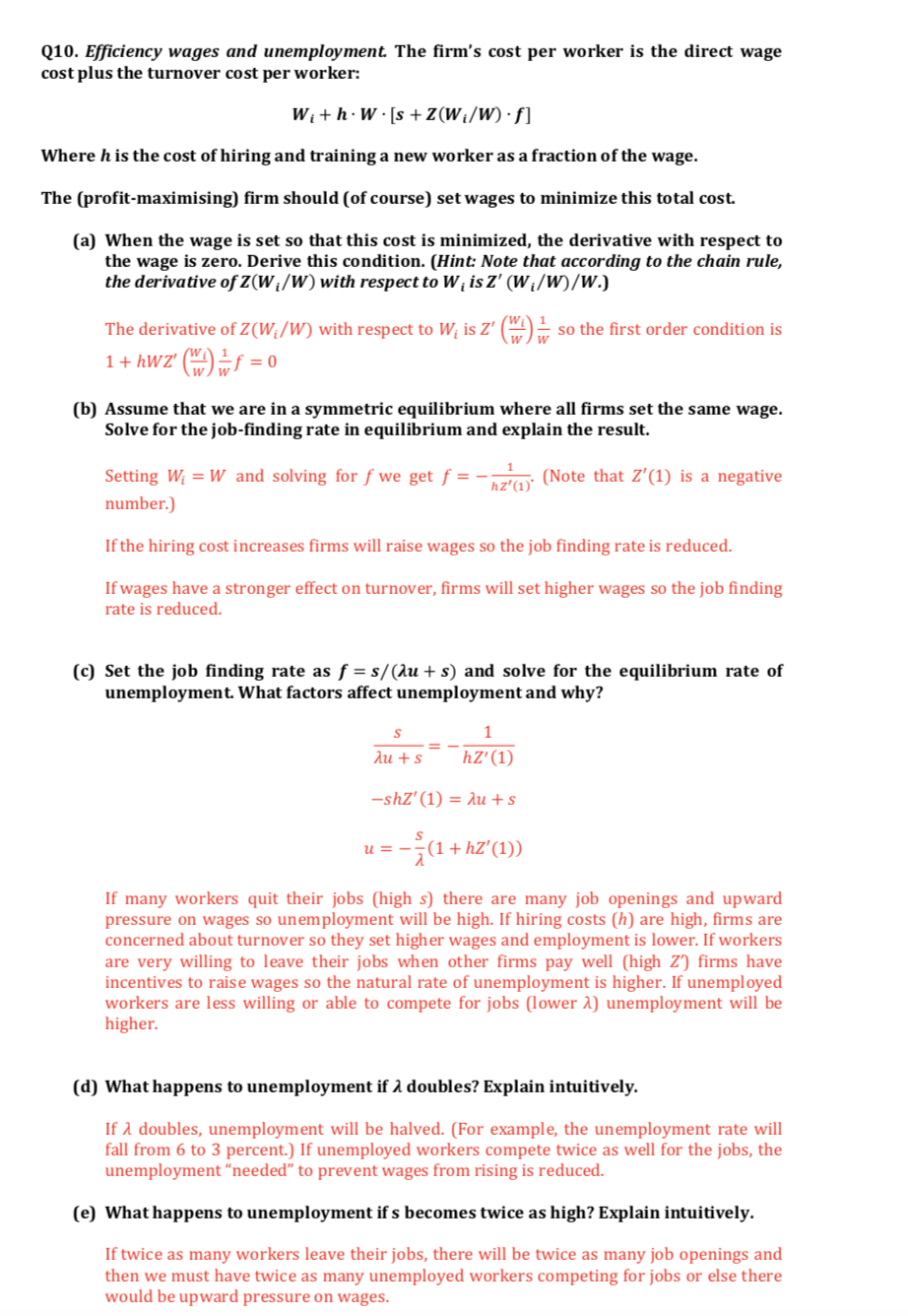Hi, please try answer ? i will vote for helpful as long its not short and not bad answer
Q10. Efficiency wages and unemployment. The firm's cost per worker is the direct wage cost plus the turnover cost per worker: With . W . [s + Z(W /W) . f] Where h is the cost of hiring and training a new worker as a fraction of the wage. The (profit-maximising) firm should (of course) set wages to minimize this total cost. (a) When the wage is set so that this cost is minimized, the derivative with respect to the wage is zero. Derive this condition. (Hint: Note that according to the chain rule, the derivative of Z(W; /W) with respect to W; is Z' (W;/W)/W.) The derivative of Z(W: /W) with respect to W: is Z' ( w) w so the first order condition is 1 + hwz' ( w ) wf = 0 (b) Assume that we are in a symmetric equilibrium where all firms set the same wage. Solve for the job-finding rate in equilibrium and explain the result. Setting Wi = W and solving for f we get f = -zig) (Note that Z'(1) is a negative number.) If the hiring cost increases firms will raise wages so the job finding rate is reduced. If wages have a stronger effect on turnover, firms will set higher wages so the job finding rate is reduced. (c) Set the job finding rate as f = s/(lu + s) and solve for the equilibrium rate of unemployment. What factors affect unemployment and why? lu + s hZ' (1) -shZ'(1) = lu + s u = - (1 + hz'(1)) If many workers quit their jobs (high s) there are many job openings and upward pressure on wages so unemployment will be high. If hiring costs (h) are high, firms are concerned about turnover so they set higher wages and employment is lower. If workers are very willing to leave their jobs when other firms pay well (high Z') firms have incentives to raise wages so the natural rate of unemployment is higher. If unemployed workers are less willing or able to compete for jobs (lower )) unemployment will be higher. (d) What happens to unemployment if 1 doubles? Explain intuitively. If 1 doubles, unemployment will be halved. (For example, the unemployment rate will fall from 6 to 3 percent.) If unemployed workers compete twice as well for the jobs, the unemployment "needed" to prevent wages from rising is reduced. (e) What happens to unemployment if s becomes twice as high? Explain intuitively. If twice as many workers leave their jobs, there will be twice as many job openings and then we must have twice as many unemployed workers competing for jobs or else there would be upward pressure on wages







